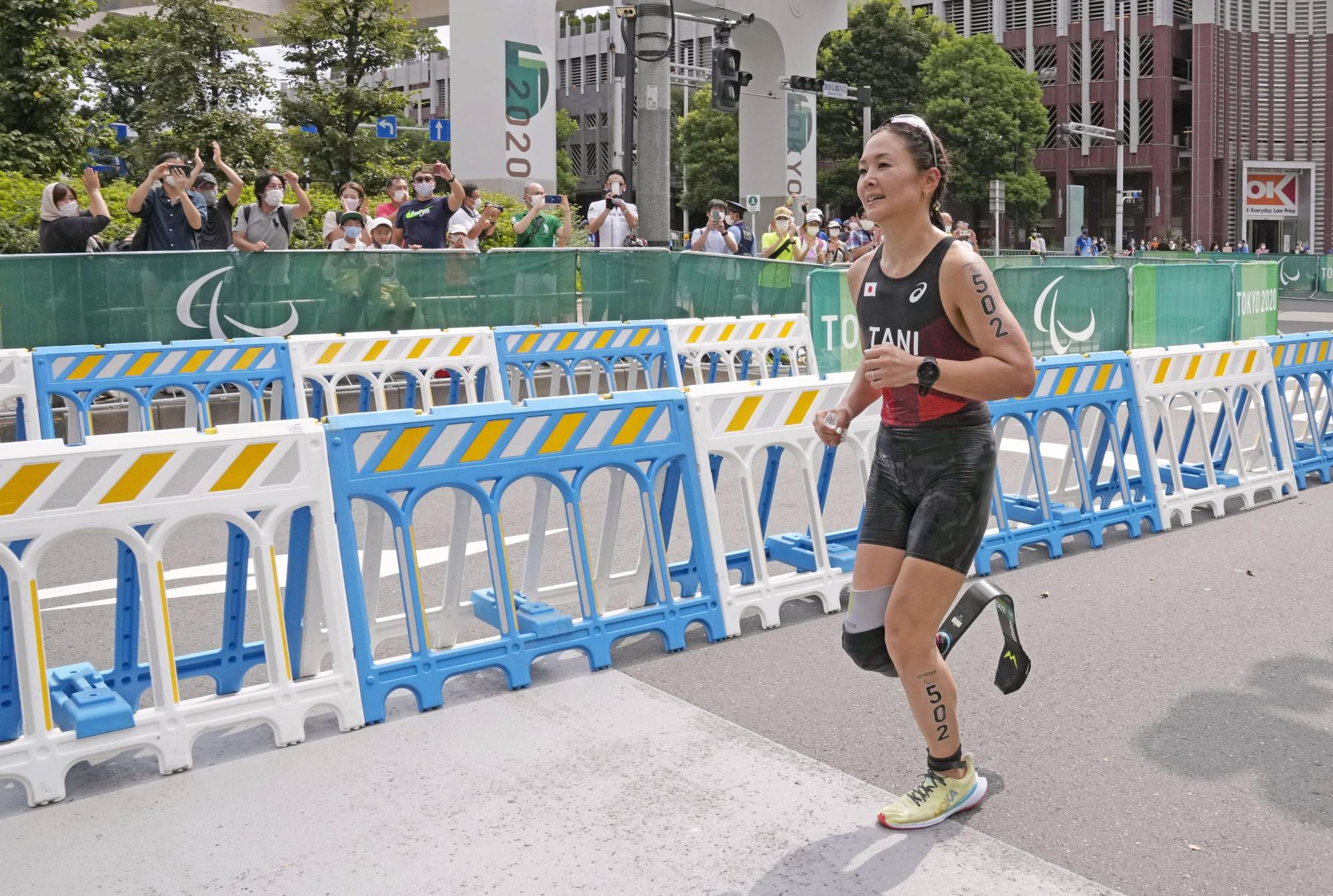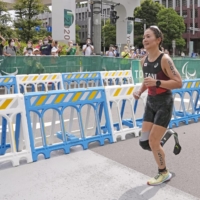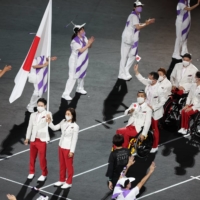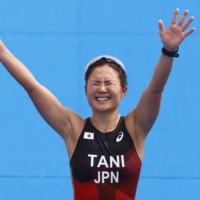Mami Tani ended the journey with a smile and some tears.
Tani helped Japan get these Paralympics eight years ago. Last week, she served as one of the nation's flag bearers during the opening ceremony. Finally, on a hot and humid Sunday morning in Tokyo Bay, she brought her long Tokyo 2020 journey full circle by competing in the triathlon.
"I just have a really strong feeling of completion," Tani said after the race.
Tani was the last athlete to cross the finish line in the women's PTS5 triathlon, but she beamed and waved as she completed the race. The ending was painful, but the journey had been meaningful.
“It was difficult, but that's triathlon," Tani said, as her emotions began to catch up to her. “But I just feel so happy to be standing here.”
The 39-year-old Tani was positioned as one of the faces of the Tokyo Paralympics. This was her first Paralympic triathlon, and it was always going to be a challenge.
Tani had her leg amputated below the knee at age 20 due to bone cancer. While competing in the long jump at past Paralympics, she also dabbled in the triathlon and other events. After switching fully to triathlon a few years ago, she began competing under the PTS4 classification (for athletes with moderate impairments) in international events. In 2017, she became the first Japanese to win gold at the world championships.
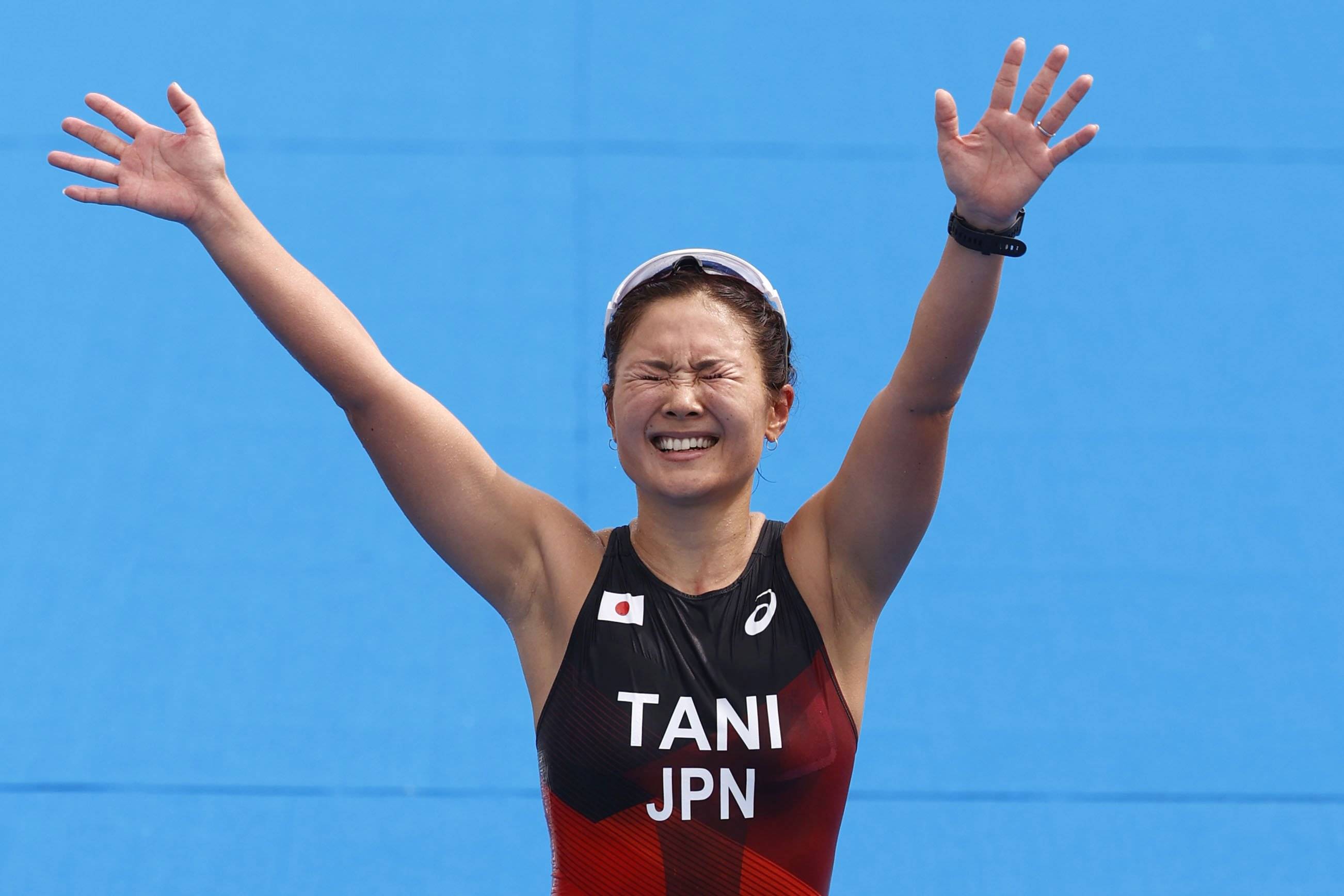
There was no PTS4 race in Tokyo due to a low number of athletes, so Tani, and also American Kelly Elmlinger, competed in the PTS5 race, against athletes with less severe impairments.
Tani finished in 1 hour, 22 minutes, 23 seconds, far behind Great Britain's Lauren Steadman, who won in 1:04.46. Tani was fifth after the swimming portion of the race but slipped down the standings during the biking and running sections.
"I'm usually in an OK position after swimming," Tani said. "But when I don't do well on the bike, I tend to fall (in the standings)."
Tani gritted through the final stages of the triathlon and on her penultimate running lap was met with chants of "Ma-mi, Ta-ni" from a large group of Americans who were cheering from the stands.
"Being here in Tokyo, in Japan, gave me the power to get to the finish line," she said.
Tani is perhaps most well-known for being part of the bid for the 2020 Games.
She traveled with other bid ambassadors and officials to Bueno Aires for the 125th IOC Session in 2013, where Tokyo made its final case to host the 2020 Games. There she gave a riveting speech about the power of sports in the face of the devastation caused by the Great East Japan Earthquake and the resulting tsunami that battered the Tohoku region in March 2011.
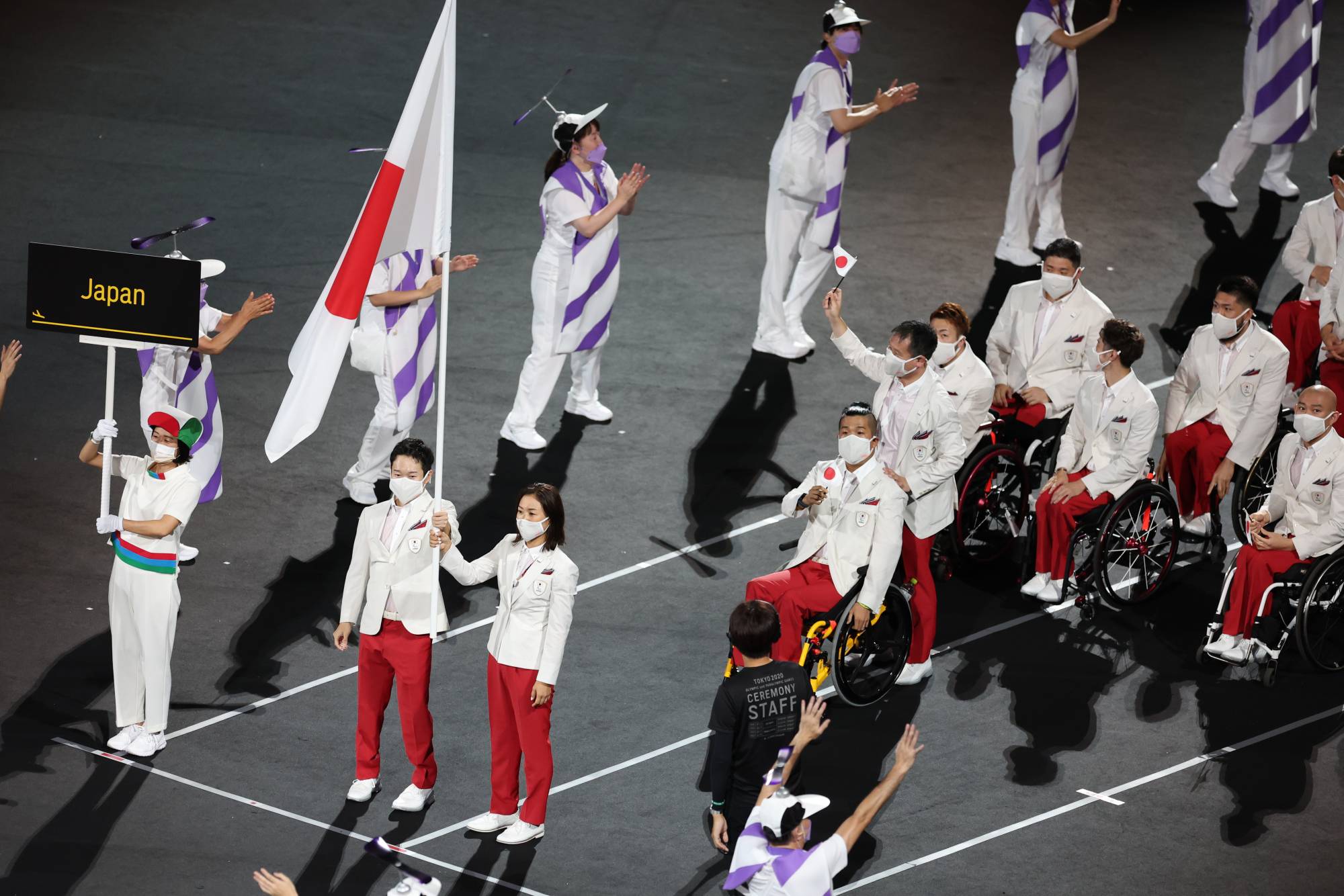
Tani is from Kesennuma, in the northeastern corner of Miyagi Prefecture, and had to wait almost a week to find out if her family had survived. Part of Japan's motivation to host the Games was to show the world how the region and its people were moving on from the disasters.
So these Games were always going to be special for her.
Tani competed in the long jump in the 2004, 2008 and 2012 Paralympics before taking time off to start a family. She shifted her focus to the triathlon in 2017 and realized her goal of competing in Tokyo this year.
Tani said she couldn't give herself a perfect score for her result on Sunday, but said the work that went into making it to the Games was 100 points out of 100.
"You have to face nature in the triathlon," she said. "The heat made it really difficult today, but each person was still able to finish. I really think it's a great sport.”
After her long and winding road to these Games, from helping with Japan's bid, to becoming a mother and taking up a different sport, Tani reached the end with her head held high.
"I've competed in four of these up to now and even though I don't have any Paralympic medals, I still think I got a really big prize," she said.



